Jakarta, MINA – The three volunteers of Medical Emergency Rescue-Committee (MER-C) returned back from Myanmar and landed at Soekarno-Hatta International Airport, Tangerang on Thursday night, November 7, 2019. Their return due to 100 percent finish of the physical construction of Indonesian Hospital in Rakhine State.
The three volunteers who spent time in Rakhine for about two years were Ir. Nur Ikhwan Abadi from Lampung, Karidi from Jakarta, and Ahmad Fauzi from Kalimantan.
In a telephone interview on “Bedah Berita MINA (BBM)” in Radio Silaturahim (Rasil) Cibubur, Bekasi on Friday night, Nur Ikhwan revealed that the physical construction of the hospital in the conflict area had been completed and the next stage would be followed up by Indonesian Red Cross (PMI) for the procurement and delivery of medical devices.
On that occasion, Nur Ikhwan also shared stories and explained the conditions which ware experienced by volunteers and local residents there (Muslims and Buddhists).
Also Read: Strengthening Bridges of Friendship and Cooperation between Indonesia and African Countries
The following is a complete transcript of Mi’raj News Agency (MINA) and Rasil interviews with the engineers who has built two Indonesian Hospitals (RSI) in Gaza and Rakhine State:
MINA & Rasil: How is the progress of Indonesian Hospital in Rakhine State, Myanmar?
Nur Ikhwan: Alhamdulillah, with the blessing of Allah Subhanahu Wa Ta’ala and prayers and support from listeners of Rasil and all Indonesian people, the physical construction of Indonesian Hospital in Rakhine State, has been completed. We, three volunteers of MER-C, thanks to The Lord, have returned after completing the construction. Construction has been completed one hundred percent. We also have built supporting buildings, such as ground tanks, mortuary, generator and so on. We have handed over to Myanmar’s Ministry of Health and Sports.
MINA & Rasil: During the construction, what are the obstacles that the team faces?
Nur Ikhwan: We actually planned the construction (to be built) for 10 months, since November 2017. But indeed, there were so many challenges and obstacles in the field that we faced. We cannot target development in conflict areas. Sometimes misses because there are so many obstacles. First, the main obstacle was security. In the area where the hospital is located, lately, for more than a year, it has become a center of the battle between the Myanmar army and the Arakan Army.
In Rakhine, there is an Arakan ethnic who is Buddhist, has a military wing called the Arakan Army. They want to be free or special autonomy from the Government of Myanmar. Because of that, they fought with the Myanmar army.
The location of this hospital became one of the centers of battle, so (construction) was hampered a lot. In fact, there were several locations of battles near the hospital that were affected, such as many who perforated, hit by walls and others.
The workers are also afraid to come to the location, while, we stay first at the inn which is 16 km away from the location. If the situation is a little conducive, we will only go to the location again and call the workers to work again. And this condition occurs continuously so that the target of 10 months is delayed for two years.
Also Read: Interview with Pakistani Ambassador to Indonesia: Kashmir Solidarity Day
MINA & Rasil: You have also been in Gaza, Palestine, building Indonesian Hospital. What is the difference between the conditions of Gaza and Rakhine? Which one is the worst?
Nur Ikhwan: Basically the same, conflict areas have no guarantee of security. Where we try to help people affected by conflict, it is quite dangerous both in Gaza and in Rakhine. But MER-C applies the principles of justice. We are indeed always showing our neutrality, not in favor of one party or another party. So, we are a bit more free to move.
In Gaza, the enemy is Israel, it’s clear. When in Rakhine itself, they mixed into the community, so sometimes we are confused too. There are many mountains in Rakhine, then the guerrilla warfare waged by Arakan Army made serious troublesome for the Government army. This is a challenge for them, even we have to be careful when walking from the inn to the hospital location. They put a lot of landmines on the edges of the road where many vehicles pass. So we have to be super careful. Many vehicles, both public and others have been affected by landmines.
MINA & Rasil: How do the people there differentiate between Myanmar and Indonesian, because they are from the same physical appearance?
Also Read: Ambassador: Many Opportunities on Relationship Between Indonesia-UAE
Nur Ikhwan: Physically, we have no many differences. We blend in with the local people, not showing exclusivity. Alhamdulillah, we were accepted on both sides, in the Buddhist community and Muslim community.
MINA & Rasil: Do Indonesian Hospital been officially handed over to the Government of Myanmar?
Nur Ikhwan: Technically, the building has all been completed, only the medical devices will be worked on by the Indonesian Red Cross (PMI). Because this has already been completed and indeed the atmosphere is not conducive for us to stay there, so we have handed over this building technique to the Ministry of Health of Myanmar. Yesterday the hospital had already been handed over, we handed over the keys so they could try out the building while waiting for the equipment sent by PMI to arrive at the location.
MINA & Rasil: RSI has already been built in Gaza, also in Rakhine. Is there information about other locations that RSI might also build?
Also Read: Exclusive Interview with Indonesian Ambassador to Afghanistan
Nur Ikhwan: We, the volunteer works according to the mandate. We are ready, sami’na wa atho’na (we hear we obey). Gaza is now in the second phase progress, then Rakhine is finished.
MINA & Rasil: What is the availability of water at RSI location, now it is the dry season, is the water found difficult?
Nur Ikhwan: Water is an obstacle in Rakhine because the water needs are vital. People there used to dig granaries, then collect rainwater. Rainwater is what they use for their daily needs for years.
To supply the water needs in this hospital, we have built a 4 x 40-meter ground tank with a depth of 3 meters that will supply the hospital’s water needs. The need for water itself is currently in dry conditions, we pull it from the nearest river. There is a river that is 700 meters away from the location of the hospital, yesterday we installed a permanent pipe to supply water to the hospital, into this ground tank when the dry season arrived.
Also Read: Taliban Needs Time for Women’s Issue, Says Indonesian Ambassador
Alhamdulillah, yesterday we pumped up and we left the hospital in a fully occupied condition.
As for the wellbore, the water is not good, salty, so it is not suitable for consumption. During the rainy season, the hospital’s piping system, every time it rains, we flow the water directly into the ground tank and accommodate it there. For the dry season, we anticipate by making a pipe into the river.
MINA & Rasil: You have seen first hand the conflicts in Gaza and Rakhine, What is your message for MINA readers and followers?
Nur Ikhwan: Conflict, whatever its form will be detrimental to all parties, whoever it is. We saw for ourselves how the people suffered, the community suffered due to the conflict. In Rakhine itself, due to the conflict, all economies declined and even stopped. Many people also fled. Currently, At the Rakhine causing more than 60,000 residents to evacuate in many tents that are very emergency. All parties are harmed.
For this reason, we convey, let’s maintain unity and integrity. Do not be easily ignited by our emotions and then cause conflicts that will certainly harm us all. Because every conflict occurs, the loss is mainly the people. So we maintain unity and unity, this is very important.
We see that in Indonesia peace, prayer can be calm, worship can be comfortable, free, all we can do. When the conflict area is like that, after six o’clock (afternoon) no out activities can be allowed. (W/Sj/P2)
Mi’raj News Agency (MINA)
Also Read: Indonesian Consul General in Jeddah Talks about Hajj Management This Year






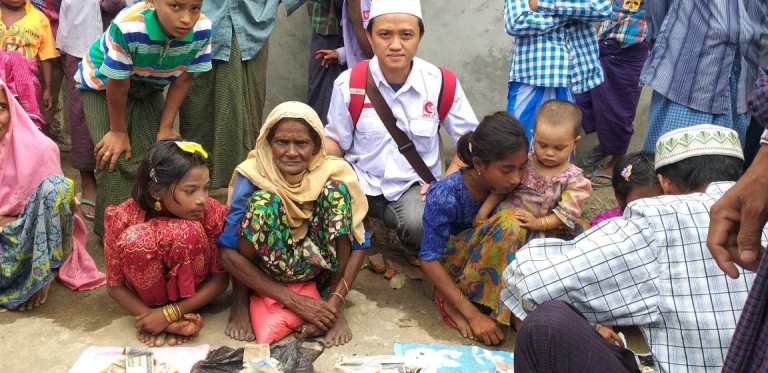


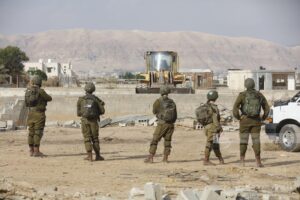
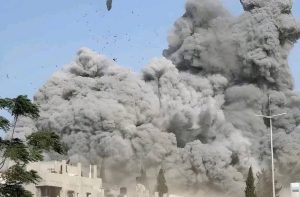
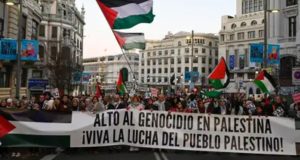
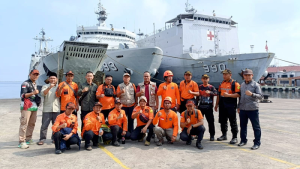
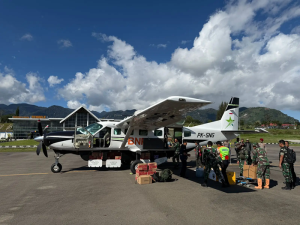
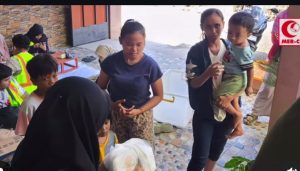
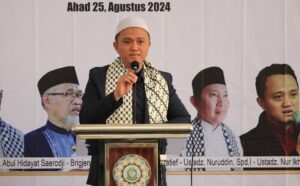
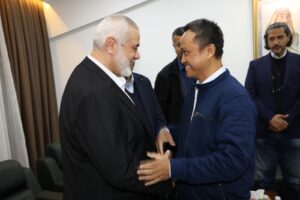
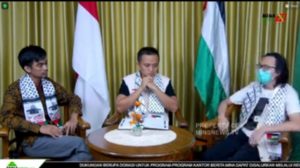
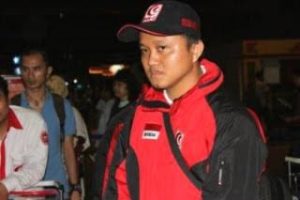
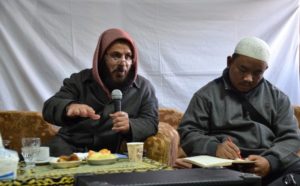
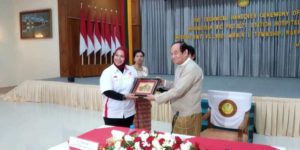






 Mina Indonesia
Mina Indonesia Mina Arabic
Mina Arabic